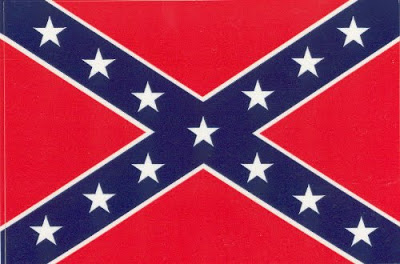Articles of Secession: "The Civil War Was About States Rights, Not Slavery

South Carolina:
In the present case, that fact is established with certainty. We assert that fourteen of the States have deliberately refused, for years past, to fulfill their constitutional obligations, and we refer to their own Statutes for the proof.
The Constitution of the United States, in its fourth Article, provides as follows: "No person held to service or labor in one State, under the laws thereof, escaping into another, shall, in consequence of any law or regulation therein, be discharged from such service or labor, but shall be delivered up, on claim of the party to whom such service or labor may be due."
This stipulation was so material to the compact, that without it that compact would not have been made. The greater number of the contracting parties held slaves, and they had previously evinced their estimate of the value of such a stipulation by making it a condition in the Ordinance for the government of the territory ceded by Virginia, which now composes the States north of the Ohio River.
Mississippi:
In the momentous step which our State has taken of dissolving its connection with the government of which we so long formed a part, it is but just that we should declare the prominent reasons which have induced our course.
Our position is thoroughly identified with the institution of slavery-- the greatest material interest of the world. Its labor supplies the product which constitutes by far the largest and most important portions of commerce of the earth. These products are peculiar to the climate verging on the tropical regions, and by an imperious law of nature, none but the black race can bear exposure to the tropical sun. These products have become necessities of the world, and a blow at slavery is a blow at commerce and civilization. That blow has been long aimed at the institution, and was at the point of reaching its consummation. There was no choice left us but submission to the mandates of abolition, or a dissolution of the Union, whose principles had been subverted to work out our ruin.
Georgia:
The party of Lincoln, called the Republican party, under its present name and organization, is of recent origin. It is admitted to be an anti-slavery party. While it attracts to itself by its creed the scattered advocates of exploded political heresies, of condemned theories in political economy, the advocates of commercial restrictions, of protection, of special privileges, of waste and corruption in the administration of Government, anti-slavery is its mission and its purpose. By anti-slavery it is made a power in the state. The question of slavery was the great difficulty in the way of the formation of the Constitution. While the subordination and the political and social inequality of the African race was fully conceded by all, it was plainly apparent that slavery would soon disappear from what are now the non-slave-holding States of the original thirteen. The opposition to slavery was then, as now, general in those States and the Constitution was made with direct reference to that fact.
Texas:
Texas abandoned her separate national existence and consented to become one of the Confederated Union to promote her welfare, insure domestic tranquility and secure more substantially the blessings of peace and liberty to her people. She was received into the confederacy with her own constitution, under the guarantee of the federal constitution and the compact of annexation, that she should enjoy these blessings. She was received as a commonwealth holding, maintaining and protecting the institution known as negro slavery-- the servitude of the African to the white race within her limits-- a relation that had existed from the first settlement of her wilderness by the white race, and which her people intended should exist in all future time. Her institutions and geographical position established the strongest ties between her and other slave-holding States of the confederacy.Etc.
So, we see, the Civil War was not about slavery. No, not at all.
It was about States Rights.
The Rights of slave-states to continue holding human beings as slaves.
It's a subtle distinction worthy of most nuanced European, isn't it?
- Obama Equates Christianity With Isis At Prayer Breakfast!
Obama said: “Humanity has been grappling with these questions throughout human history. Unless we get on our high horse and think this is unique to some other place. Remember that during the Crusades and Inquisition, people committed terrible deeds...
-
Many Blacks in US Say Slavery Was a Good ThingA classic post from Bernie at Planck's Constant: Most people reading the title to this article will not believe that I am serious or believe that it could possibly be true. I have no doubt that even racist...
- Ted Hayes: "i Don’t Blame White People For Slavery – I Blame Blacks And Muslims For Slavery!"
My opinion, as if anyone asked for it: America bought and kept slaves. And, for that we share a collective guilt, just as we share a collective honor for having done away with Slavery and Nazism. However, the truth is, the Koran sanctions slavery, and...
- The United States Of America Is Not A Democracy
You think I'm going moonbat on you, don't ya? No, I just think this is A very important post from Nevsky at The Murky Waters: The United States of America is NOT a Democracy! Repeat after me: "I pledge allegiance,to the flag, of the United States...
- Tony Blair Pulls A Clinton
In 1807 one of the largest slave holding empires in the world outlawed the slave trade. No, it wasn’t the Ottoman Empire. It was, of course, Great Britain. England outlawed the slave trade because, as a result of the Enlightenment, it was judged as...
